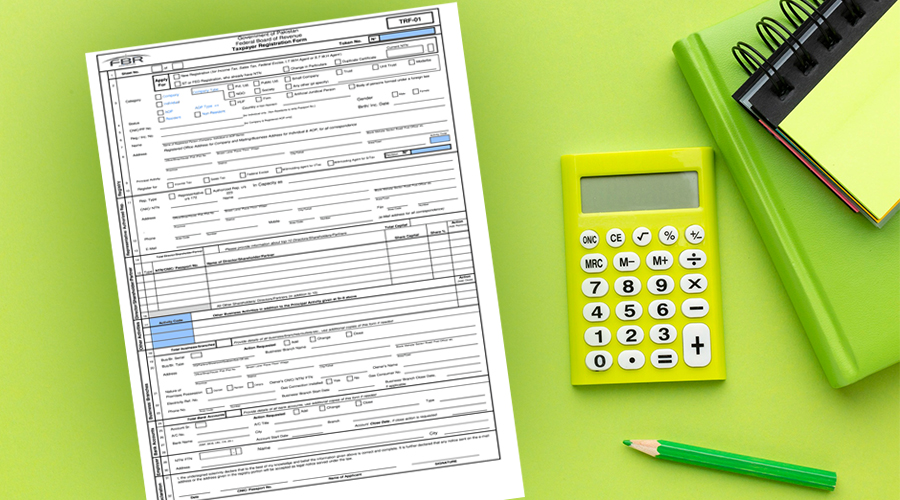OVER VIEW OF INCOME TAX LAWS IN PAKISTAN
The Income Tax Ordinance 2001 is the main tax law in Pakistan that governs the taxation of income. It provides a framework for the taxation of individuals, companies, partnerships, and other entities operating in Pakistan. Here are some of the key provisions of the Income Tax Ordinance 2001:
Taxable income: The ordinance defines taxable income as the total income earned by an individual or entity during a tax year, less any deductions and exemptions allowed under the law.
Tax rates: The ordinance prescribes different tax rates for different income brackets. For individuals, the tax rates range from 0% to 35%, depending on the income level. For companies, the tax rate is a flat 29%.
Tax deductions and exemptions: The ordinance allows for various deductions and exemptions that can reduce the taxable income. These include deductions for charitable donations, medical expenses, and home mortgage interest payments, among others.

Withholding tax: The ordinance requires certain parties, such as employers and financial institutions, to withhold taxes from payments made to individuals or entities. These withholding taxes are credited against the final tax liability.
Filing requirements: The ordinance requires taxpayers to file tax returns annually, reporting their income and tax liability. Failure to file a return or pay taxes on time can result in penalties and interest charges.
Tax audits: The ordinance authorizes tax authorities to conduct tax audits of taxpayers to ensure compliance with the law. Taxpayers are required to maintain records of their income and expenses to support their tax filings.
Overall, the Income Tax Ordinance 2001 is a comprehensive law that lays out the rules and procedures for the taxation of income in Pakistan. It is regularly updated to reflect changes in the economy and tax policy.
Under the Income Tax Ordinance 2001, salary tax is a type of income tax that is levied on the income earned by an individual through their employment. The tax is calculated based on the salary received by an individual during a tax year, which is the period from July 1st to June 30th of the following year in Pakistan.
The salary tax is deducted at source by the employer and remitted to the tax authorities on behalf of the employee. The employer is required to withhold tax from the salary of the employee based on the applicable tax rates and deductibles as per the law.
The tax rates for salary tax are progressive, meaning that the tax rate increases as the income level increases. The tax rates are updated annually through the Finance Act passed by the parliament of Pakistan.
The Income Tax Ordinance 2001 also has provisions for the taxation of income earned by Pakistani citizens and nonresidents working overseas. Under the ordinance, such individuals are not required to pay tax on their worldwide income, excluding income earned in Pakistan.
However, to avoid double taxation, the ordinance provides for certain exemptions and deductions for overseas Pakistanis. For example, individuals who are residents of a country with which Pakistan has a tax treaty can claim a tax credit for taxes paid in that country. Additionally, certain types of income, such as income from foreign sources that is taxed in the country where it is earned, may be exempt from taxation in Pakistan.
To determine their tax liability, overseas Pakistanis are required to file a tax return with the Federal Board of Revenue (FBR) in Pakistan. The return must include only income earned during the tax year in Pakistan and any taxes paid or withheld in Pakistan.
Overall, the Income Tax Ordinance 2001 aims to ensure that all Pakistani citizen nonresidents, do not taxes on their income earned outside Pakistan.
OVERVIEW OF FEDERAL EXCISE DUTY (FED)
Federal Excise Duty (FED) is a form of indirect taxation imposed by the federal government of Pakistan on certain goods and services produced and consumed within the country. The FED is governed by the Federal Excise Act, 2005 and its rules and regulations.
The FED applies to a wide range of goods and services, including petroleum products, telecommunication services, cement, sugar, beverages, cigarettes, and textiles. The rate of FED varies depending on the nature of the product or service, and the tax is generally collected at the manufacturing or production stage.
In addition to the general FED, there are specific FEDs applicable to certain industries, such as the cement industry, tobacco industry, and sugar industry. The FED collected from these industries is then used for specific purposes, such as the construction of dams or the promotion of the sugar industry.
The Federal Board of Revenue (FBR) is responsible for the administration and collection of FED in Pakistan. The FBR issues rules and regulations related to the FED, and also conducts audits and investigations to ensure compliance with the law.
Non-compliance with FED laws and regulations can result in penalties and fines, as well as legal action against the offender. Therefore, it is important for businesses and individuals to understand and comply with the FED laws in Pakistan to avoid any legal issues.

OVERVEW OF SALES (INDIRECT TAX )TAX LAWS
Sales tax is one of the major sources of revenue for the Government of Pakistan. The sales tax laws in Pakistan are governed by the Sales Tax Act 1990, which has been amended several times over the years to incorporate changes in the tax system.
The sales tax system in Pakistan is a value-added tax (VAT) system, which means that the tax is levied on the value added to a product at each stage of production and distribution. This tax is collected by the Federal Board of Revenue (FBR), which is the primary tax collection agency in Pakistan.
Under the sales tax laws in Pakistan, any person engaged in the business of selling goods or services is required to register for sales tax with the FBR. The current sales tax rate in Pakistan is 17%, although certain goods and services are exempt from this tax.
There are also several other types of taxes that are related to sales tax in Pakistan, including federal excise duty (FED), which is a tax on the production and sale of certain goods, and withholding tax, which is deducted from payments made to non-residents.

In recent years, the FBR has implemented several measures to improve the efficiency and effectiveness of the sales tax system in Pakistan, including the introduction of an electronic tax filing system and increased enforcement of tax laws.
Overall, the sales tax laws in Pakistan are designed to ensure that businesses pay their fair share of taxes, while also promoting economic growth and development in the country.
As mentioned earlier, sales tax is a major source of revenue for the Government of Pakistan, and it is levied on the supply of goods and services. The Sales Tax Act 1990, which is the primary law governing sales tax in Pakistan, has undergone several amendments over the years to make the tax system more efficient and effective.
Under the Sales Tax Act 1990, any person engaged in the business of selling goods or services is required to register for sales tax with the Federal Board of Revenue (FBR). Once registered, businesses are required to charge sales tax on the goods or services they sell, and they must file regular sales tax returns with the FBR.
The current sales tax rate in Pakistan is 17%, although there are certain goods and services that are exempt from this tax. Some of the exempted goods and services include agricultural products, educational services, healthcare services, and certain financial services.
In addition to sales tax, there are several other types of taxes that are related to sales tax in Pakistan. These include federal excise duty (FED), which is a tax on the production and sale of certain goods, such as cigarettes, beverages, and telecommunication services. There is also withholding tax, which is deducted from payments made to non-residents for certain services, such as royalties, technical fees, and consultancy services.
The FBR is responsible for the administration and enforcement of sales tax laws in Pakistan. In recent years, the FBR has taken several measures to improve the efficiency and effectiveness of the sales tax system, including the introduction of an electronic tax filing system, which has made it easier for businesses to file their tax returns.
Overall, the sales tax laws in Pakistan are designed to ensure that businesses pay their fair share of taxes, while also promoting economic growth and development in the country.
OVERVIEW OF COMPANIES ACT.
The Companies Act 2017 is a major piece of legislation in Pakistan that governs the incorporation, regulation, and dissolution of companies in the country. It replaced the previous Companies Ordinance 1984 and came into effect on May 1, 2017.
The Companies Act 2017 provides a comprehensive legal framework for the formation and operation of companies in Pakistan. It includes provisions for the incorporation of companies, the registration of companies, the appointment and duties of directors, the rights and liabilities of shareholders, the management of companies, the issuance of shares and securities, the restructuring and insolvency of companies, and the regulation of mergers and acquisitions.
The Securities and Exchange Commission of Pakistan (SECP) is the regulatory body responsible for the implementation and enforcement of the Companies Act 2017. The SECP has a wide range of powers and functions, including the registration and regulation of companies, the oversight of capital markets and securities trading, and the enforcement of securities laws and regulations.

In addition to its regulatory role, the SECP also plays an important role in promoting the development of Pakistan’s capital markets and corporate sector. It has launched various initiatives to encourage the growth of new businesses, improve corporate governance practices, and enhance the transparency and integrity of the business environment in Pakistan. The SECP also works closely with other government agencies and stakeholders to develop policies and regulations that support the sustainable growth and development of the Pakistani economy.
The Companies Act 2017 is a comprehensive legislation that replaced the previous Companies Ordinance 1984 in Pakistan. The purpose of the act is to provide a legal framework for the incorporation, management, and dissolution of companies in the country. The act covers a wide range of aspects related to companies, such as the appointment of directors, the rights of shareholders, the issuance of shares, the reorganization and insolvency of companies, and the regulation of mergers and acquisitions.
The act aims to promote the development of the corporate sector in Pakistan by creating a conducive legal environment for businesses. It provides greater protection to investors, enhances the accountability of directors, and ensures greater transparency and disclosure requirements for companies. The act also incorporates provisions to encourage small and medium-sized enterprises (SMEs) and promote entrepreneurship in the country.
The Securities and Exchange Commission of Pakistan (SECP) is the regulatory body responsible for implementing and enforcing the Companies Act 2017. The SECP has a wide range of powers and functions related to the regulation of companies in Pakistan. These include the registration and regulation of companies, the oversight of capital markets and securities trading, and the enforcement of securities laws and regulations. The SECP also works to promote the development of the capital markets and corporate sector in Pakistan through various initiatives and policy measures.
Overall, the Companies Act 2017 and the SECP play a crucial role in promoting the development of the corporate sector in Pakistan. The act provides a modern legal framework for the incorporation and regulation of companies, while the SECP ensures that these laws and regulations are implemented effectively to promote transparency, accountability, and investor protection.
